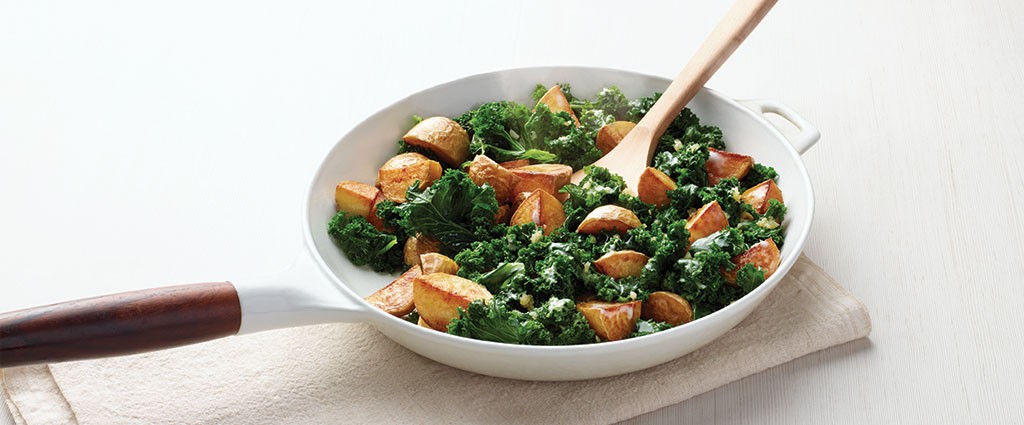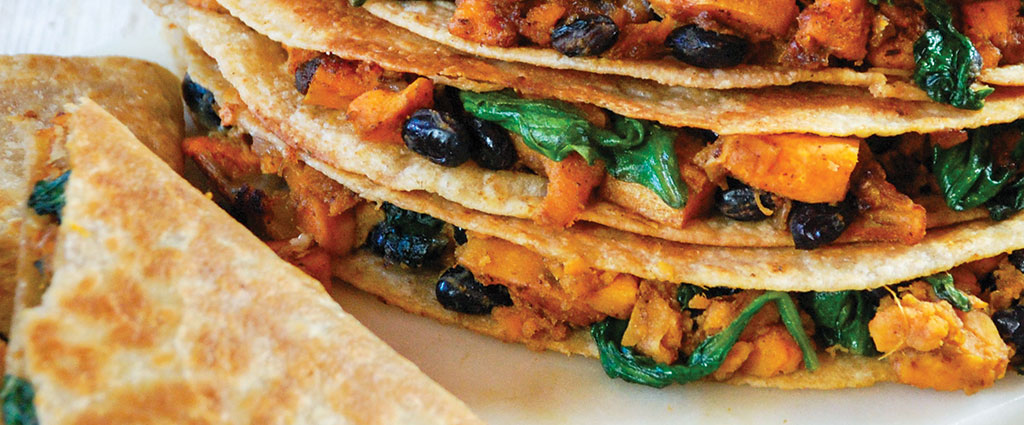5 Health Benefits of Going Plant-Based
Wondering if you should make the switch to plant-based nutrition? This expert advice will help you decide.
BY MEGHAN RABBITT
With so much diet advice available these days—and so much conflicting information about those diets—it can be tough to know what plan to follow for optimal health. Yet as you try to sort through the pros and cons of Keto versus low-carb and vegetarian versus vegan, here’s one thing most nutrition experts tend to agree on: plant-based nutrition offers a number of health benefits.
For starters, what is plant-based nutrition? Essentially, it’s a diet consisting mostly (or entirely!) of foods that come from plants—not animals, says Michelle Hyman, R.D., C.D.N., a registered dietitian in New York. “That means you’ll eat a lot of veggies, nuts, seeds, legumes, grains and fruits.” The good news is that info on how to start a plant-based diet is everywhere: There are so many easy plant-based recipes—not to mention information on the benefits of following a plant-based diet—that you’ll be able to incorporate more plant-based foods into your diet in no time.
OUR FAVORITE PLANT-BASED RECIPES
Looking for a little inspiration to help you follow a plant-based diet? Here are five big benefits of incorporating more plant-based foods into your meals.
Benefit No. 1: Plant-based proteins can help you lose weight.
Research shows that those who follow a plant-based diet tend to cut back on the amount of saturated fat and calories they consume, says Lisa Richards, a Vancouver, Canada-based nutritionist and author of The Candida Diet. Not only can this help you drop pounds, but “it can also reduce your risk of heart disease and other chronic conditions,” she says.
Benefit No. 2: If you struggle with dairy, there are plant-based substitutes.
If you enjoy butter, milk and cheese, but are allergic to dairy or have an intolerance to lactose, plant-based options abound. Butters like Country Crock's Plant Butters, made from olive, avocado or almond oils, are a great example.
Benefit No. 3: Eating less animal protein lowers your risk of disease.
Non-lean animal protein (think beef, lamb, and pork) are high in saturated fats that boost cholesterol, chronic inflammation and your risk of all kinds of disease. Replacing those with healthier plant-based options has been shown to do the opposite: “A plant-based diet can ultimately lower your risk of disease,” says Lynell Ross, a certified health and wellness coach, nutritionist and National Diabetes Prevention Program Instructor.
Benefit No. 4: A plant-based diet will inspire you to eat more produce.
When you start following a plant-based diet, it’s smart to plan your meals so that vegetables are the main event—and to think of meat more like a condiment, says Caitlin Self, R.D., a dietitian-nutritionist and certified nutrition specialist. It may also prompt you to use more health-promoting spices and fresh herbs than you typically do, adds Mark Reinfeld, a vegan chef, consultant and author of The Ultimate Age Defying Plan.
Benefit No. 5: Plant-based eating will inherently health-ify your go-to meals.
Starting a new plant-based diet will undoubtedly introduce you to some new ingredients because you’ll likely swap out some of the animal protein you usually make with plant-based proteins, such as chickpeas, quinoa or tofu. When you’re getting started, try using alternatives to your animal-based go-tos, such as plant-based butter instead of dairy spreads when you sauté veggies, or minced “meat” in your tomato sauce or chili. “This will leave you feeling satisfied,” says Richards, “and will likely surprise those you’ve cooked for when you tell them it was a vegetarian or vegan meal!”






Share this Post